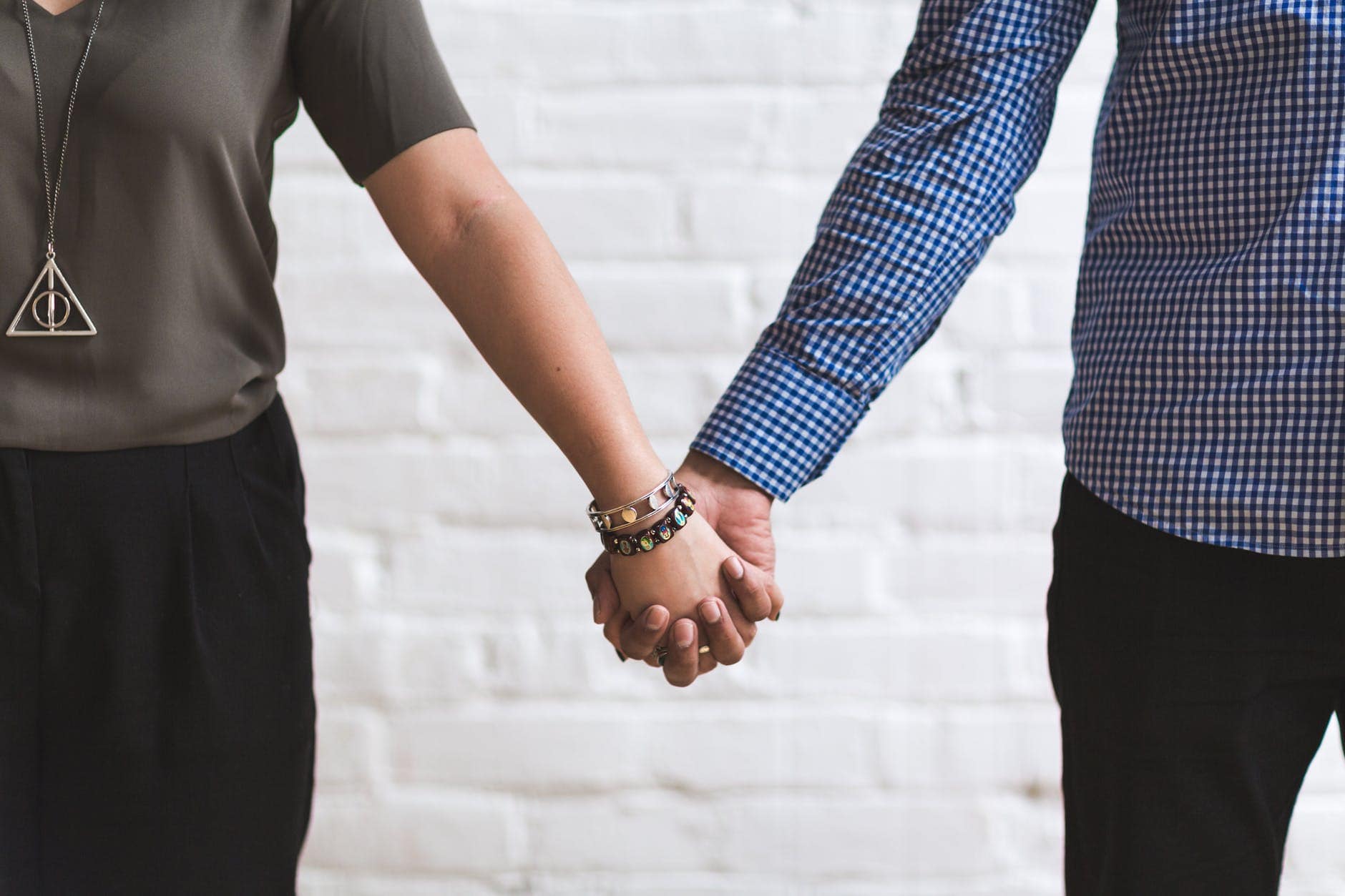When you are really invested in your relationship, there might be times you may feel frustrated. Irritated due to the fact that you always end up with someone who eats up all your energy and makes you feel “not perfect”. Did the question “Am I Codependent?” ever came across your mind? Well, if it did, then you might have a clue about why you always feel this way, you feel devoted but give in too much that you forget about yourself. While there is nothing wrong about loving your partner, but there is nothing right about forgetting about your wishes and needs.

Codependence never feels bad until it starts to choke the other person. The excessive caretaking, controlling, keeping track of every moment, this all may seem like “looking out for them” for some, but for most, it is simply being a creep. I do not mean to be rude, but there have been many cases where the relationship addiction has made many relationships crumble. This issue might be seen as a behavioral condition that affects the person’s ability to have a healthy relationship which is mutually satisfying and doesn’t promote their partner’s addictions, irresponsibility, or under-achievement.
This type of codependent personality disorder is commonly seen in the mother-son relationship. Often you see a loud-mouth child with a really expensive phone shouting at elders, you will find her mother defending his every action. These kinds of relationships are always bad for both ends. And in this case, both the mother and the son have to suffer the consequences.
Codependent Definition
A behavioral condition in any kind of relationship, be it parent-child, spouses, lovers, or siblings, where one person enables another person’s bad habits like addiction or irresponsibility and is the cause of the poor mental health and immaturity.
This condition is both emotional and behavioral that affects the ability to have a healthy and mutually satisfying relationship. In most cases, people often form or maintain relationships that are one-sided, emotionally destructive and/or abusive. The codependent person affects their emotional health and ability to find fulfillment in a relationship.
The concept of Codependent Personality originally was considered as a result of addictions like alcoholism. The behaviors like rescuing a partner, bailing them out, and making excuses for their behavior, and constantly trying to fix problems, were considered as enabling behaviors, and are a non-addiction related codependent relationship.
Why Is Codependency Bad?
To understand this consider the following points –
- When a person ignores their own needs and only cares for what their partner might want, is it good?
- If a person lacks self-worth and has difficulty in accepting from others, is it fine?
- Are the people who find their self-esteem by winning their partner’s approval doing better with their lives?
- Some people only attract partners who are emotionally unstable and find themselves in a relationship with needy, unreliable, or emotionally detached people. Do they have the best life?
If all of your answers were “No”, then you stand correct. The traits that I just told you, all belong to a codependent person. And I don’t think I have to state the reason why codependency bad anymore!!
Codependent Behavior Examples
To tell if your relationship is going downhill and is unhealthy, here are the signs that tell if a person is codependent ~
- A codependent person always feels as if their life revolves around their partner. They make and cancel plans according to their partner’s schedule, but never complain because you think that their reason is genuine.
- People who are codependent are classic peacemakers and people like to be around you. But no matter how hard they try, whatever they do, they think that they are never good enough
- They always try to be happy and smiling even when they are mad, or even frustrated.
- The codependent people have a habit of keeping their secrets to themselves even when they know that it is harmful to them.
- Sometimes, the people with this issue feel devalued, and they often think that their partner does not respect them as they should.
- Instead of feeling loved, valued, and happy, they feel anxiety in their relationship. They feel trapped, but the idea of leaving makes them uncomfortable and they feel like a horrible person for abandoning their partner.
If you feel any or all of the above statements, then you might be in a codependent relationship.
But, not all relationships turn sour when one among the two is codependent. The effect shows only when the intensity of the codependency is really high. Unless there is no major compulsion in the relationship, you can say that is is a healthy one. For example, if you ask your partner for advice and they help you out, it is not considered unhealthy, but if you make it compulsory to follow all the rules and regulation, then you might be the cause of the unhealthy track of your relationship.
Codependent Vs Dependent
There is a huge difference in being codependent or dependent. A person depending on someone might seem like a desirable trait and can be termed as positive. But, codependency is straight up prioritizing one’s needs over another’s.
To know the difference, let’s take a look at the traits with examples.
Dependent – Two people who are in love, support each other and give out proper value and respect to each other.
Codependent – One feels worthless unless he/she are needed by another. The codependent person might have to make drastic sacrifices for the other (who we call the enabler). And the enable gets satisfaction knowing that all their needs are being met by the person.
Dependent – Both make their relationship a priority, and they feel to share their interests, hobbies, and other friends
Codependent – The codependent person has no personal identity, interests or values outside of their relationship
Dependent – The people involved express their emotions towards each other openly and find ways to make each other happy.
Codependent – One of the two involved feels that their needs and desires are not that important and will shy away from expressing them.
How To Stop Being Codependent
If you seek out or try to ask for help once you identify the issue, you can successfully treat codependency. You can pursue counseling, ask for help from a friend or family member, and you can even ask your partner to come with you for the couple’s therapy.
If you have mad a decision that you can no longer stay in that limbo and want to break free of your redundant anxiety-filled life and want to Stop Being Codependent then here some beneficial steps that you might take, with or without your partner –
- Individual or Group Therapy. This may sound absurd, but individual or group therapy prove better than couples therapy. This is because it encourages the person to explore life outside their comfort zone, and know themselves outside of their relationship. This is just like alcohol anonymous, where you don’t take your alcohol with you.
- Take small steps towards separation. This could be like an experiment, pick any activity that you might like to do, and do it alone, maybe with your friends but without your partner. Enjoy it outside your relationship, and you will see the burden fading away.
- Spend more time with family. Sometimes being in a relationship separates you from your family, alter that and spend more time with them. ]
- Enabler must help their partner. If both the partners know that one of them needs help, then the enabler must support the codependent one by not allowing them to make sacrifices.
How To Overcome Codependency
As I said before, there are many ways that a person may overcome their habit. But if you want to do something on a personal level, then you may find other ways to help yourself. And one of the ways if joining a Group therapy. It might not sound personal, but involving in a group session might help you bring out the real you by helping others and getting help.
Codependents Anonymous
This is a type of Group therapy. Just like alcoholics anonymous or gamblers anonymous, the codependents anonymous is a group of people who share common desire to fix their relationships and want to develop functional and healthy relationships. It is a twelve-step program that can be attended by anyone who is suffering from this disorder and wants to get help. The first meeting was held in 1986 in Phoenix and was attended by 30 people.
Conclusion
Whether it is out of love, or care, an unhealthy relationship never goes far. It takes everything that you love away from you too. So, before it is too late before you get hurt for doing something that you don’t intend to, talk to someone.
If you want to talk, you can comment to me too. I would be glad to help out!
